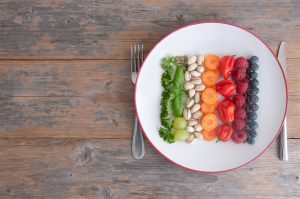
Hip, leg, or any other bone, for that matter.
A new study published in BMC Medicine found that vegetarians, vegans, and pescatarians (those who eat fish but no other meat) suffer bone breaks at significantly higher rates than those who eat meat.
Hip fractures, a particularly severe bone break, happened at a rate of 2.3x more among vegans.
Even after researchers took body mass index (BMI), protein, and calcium intake into account, a major difference in risk remained.
Non-meat eaters generally get less calcium and protein than omnivores, which may play a role in fracture risk. They may translate to lower bone density and a lack of quality muscle support. Dairy and meat, both animal products, are a great source of these nutrients.
It’s also rather easy for those following a plant-based diet to come up short on other nutrients like vitamin D, B-vitamins, vitamin K, iron, and zinc, which can all contribute to strong bones.
You don’t necessarily need to eat a lot of animal foods to improve bone health. But including them can offer a big nutritional hit to help support your body’s structure and limit the risk of breaks.
Along with including some more meat in your diet, take a close look at what “plant-based” means to you. If it means eating anything that isn’t meat, you won’t necessarily experience your desired health benefits. Potato chips, soda, and plenty of other junk food are “plant-based” and easily fit into a vegetarian or vegan diet.
No matter what kind of diet you select, realize there are inherent risks and rewards. Generally speaking, a diet that focuses on eliminating an entire food group isn’t necessarily the healthiest choice.
For strong, healthy bones and a lower risk of fractures, feature healthful animal products in your diet. They can easily fit into a high-vegetable eating plan.